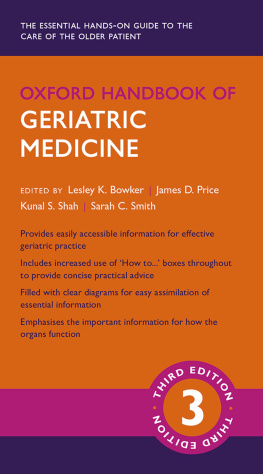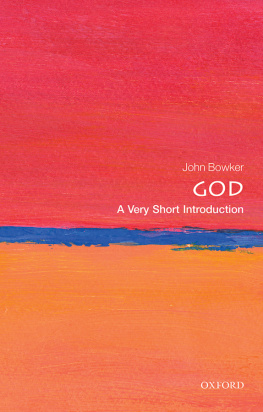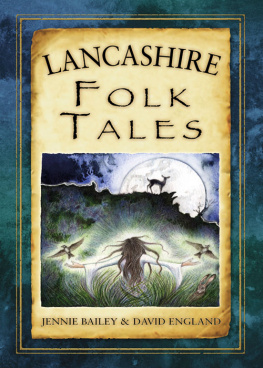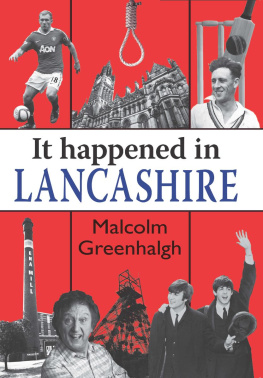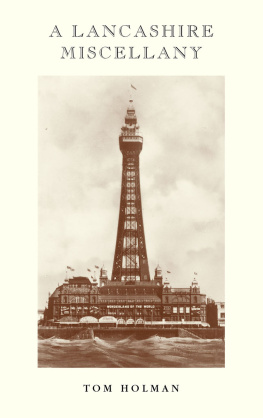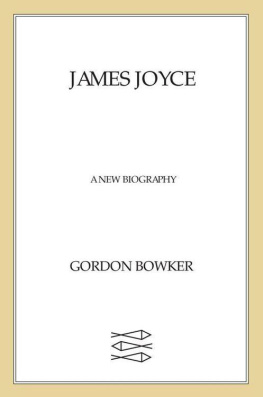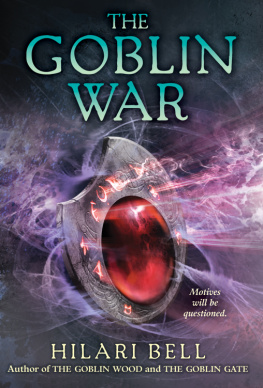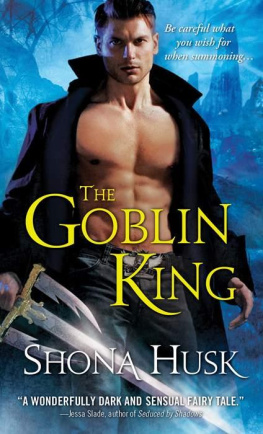Goblin Tales of Lancashire
GOBLIN TALES OF LANCASHIRE.
Page .
GOBLIN TALES
OF LANCASHIRE
BY
JAMES BOWKER, F.R.G.S.I.
AUTHOR OF 'PHBE CAREW, A NORTH COAST STORY,' 'NAT HOLT'S FORTUNE,' ETC.
WITH ILLUSTRATIONS FROM DRAWINGS
BY THE LATE CHARLES GLIDDON.
'Of Faery-land yet if he more enquire,
By certain signes here sett in sondrie place,
He may itt fynd.'
Spenser
'La veuve du mme Plogojovits dclara que son mari depuis sa mort lui tait venu demander des souliers.'
Calmet , Trait sur les Apparitions, 1751.
London
W. SWAN SONNENSCHEIN & CO.
PATERNOSTER ROW
TO
THE MOST NOBLE
THE MARQUIS OF HARTINGTON, P.C., D.C.L.
THIS LITTLE VOLUME IS DEDICATED
IN ACKNOWLEDGMENT OF
MUCH KINDNESS.
INTRODUCTION.
F OR many of the superstitions which still cling to him the Lancashire man of the present day is indebted to his Celtic and Scandinavian ancestors. From them the Horse and Worm stories, and the Giant lore of the northern and southern mountains and fells, have come down, while the relationship of the 'Jinny Greenteeth,' the presiding nymph of the ponds and streams, with allusions to whom the Lancastrian mother strives to deter her little ones from venturing near the pits and brooks; to the water-spirits of the Gothic mythology, is too evident to admit of any doubt. The source of the 'Gabriel Ratchets,' the hell-hounds whose fear-inspiring yelps still are heard by the benighted peasant, who finds in the dread sound a warning of the approach of the angel of death; in the Norse Aasgaardsveia, the souls condemned to ride about the world until doomsday, and who gallop through the midnight storm with shrieks and cries which ring over the lonely moors; or in that other troop of souls of the brave ones who had died in battle, being led by the storm-god Woden to Walhalla, also is undeniable.
Striking, however, as are the points of similitude between some of the Lancastrian traditions and those of the north of Europe, others seem to be peculiar to the county, and that these are of a darker and gloomier cast than are the superstitions of districts less wild and mountainous, and away from the weird influence of the sea, with its winter thunderings suggestive of hidden and awful power, may in a great measure be correctly attributed to the nature of the scenery.
It is easy to understand how the unlettered peasant would people with beings of another world either the bleak fells, the deep and gloomy gorges, the wild cloughs, the desolate moorland wastes two or three thousand feet above the level of the sea, of the eastern portion of the county; or the salt marshes where the breeze-bent and mysterious-looking trees waved their spectral boughs in the wind; the dark pools fringed with reeds, amid which the 'Peg-o'-Lantron' flickered and danced, and over which came the hollow cry of the bittern and the child-like plaint of the plover; and the dreary glens, dark lakes, and long stretches of sand of the north and west.
To him the forest, with its solemn Rembrandtesque gloom,
Where Druids erst heard victims groan,
the lonely fir-crowned pikes, and the mist-shrouded mountains, would seem fitting homes for the dread shapes whose spite ended itself in the misfortunes and misery of humanity. Pregnant with mystery to such a mind would be the huge fells, with their shifting 'neetcaps' of cloud, the towering bluffs, the swampy moors, and trackless morasses, across which the setting sun cast floods of blood-red light; and irresistible would be the influence of such scenery upon the lonely labourer who would go about his daily tasks with a feeling that he was surrounded by the supernatural.
And wild as are many parts of the county to-day, it is difficult to conceive its condition a century or two ago, when much of the land was not only uncultivated, but was, for at least a portion of the year, covered by sheets of water, the highways being little more than bridle roads, or, if wider than usual, very sloughs of despond, the carts in several of the rural districts being laid aside in winter as utterly useless, and grain and other commodities, even in summer time, being conveyed from place to place on the backs of long strings of pack-horses.
Living in lonely houses and cottages shut out from civilisation by the difficulties of communication, and hemmed in by floating mists and by much that was awe-inspiring, with in winter additional barriers of storm, snow and flood, it is easy to imagine how in the fancy of the yeoman, shepherd, farmer, or solitary lime burner, as 'th' edge o' dark' threw its weird glamour over the scene, boggarts and phantoms would begin to creep about to the music of the unearthly voices heard in every sough and sigh of the wandering wind as it wailed around the isolated dwellings.
In everything weird they found a message from the unknown realms of death. The noise of the swollen waters of the Ribble or the Lune, or the many smaller streams hurrying down to the sea, was to them the voice of the Water Spirit calling for its victim, and the howling of their dogs bade the sick prepare to meet 'the shadow with the keys.' All around them were invisible beings harmful or mischievous, and to them they traced much of the misfortune which followed the stern working of nature's laws.
The superstitions which date from, as well as the actual annals of the Witch Mania in Lancashire, in some slight degree confirm this theory, for whereas in the flat and more thickly-populated districts the hag contented herself with stealing milk from her neighbour's cows, spoiling their bakings, and other practical jokes of a comparatively harmless kind, in the wilder localitiesthe region of pathless moors and mist-encircled mountainsthe witch ever was raising terrible storms, bringing down the thunder, killing the cattle, dealing out plagues and pestilence at will, wreaking evil of every conceivable kind upon man and beast, and, hot from her sabbath of devil-worship, even casting the sombre shadows and dread darkness of death over the households of those who had fallen under the ban of her hate.
Lancashire has, however, an extensive ghost lore to which this theory has no reference, consisting as it does of stories of haunted houses and churchyards, indelible blood-stains, and all the paraphernalia of the
Shapes that walk
At dead of night, and clank their chains and wave
The torch of hell around the murderer's bed.
The sketch in this volume, 'Mother and Child,' for the skeleton of which tradition I am indebted to the late Mr. J. Stanyan Bigg, may be considered a fair specimen of these stories. In most cases these legends are not simply the vain creations of ignorance and darkness, although they fade before the light of knowledge like mists before the sun, for under many of them may be found a moral and a warning, or a testimony to the beauty of goodness, hidden it is true beneath the covering of a rude fable, just as inscriptions rest concealed below the moss of graveyards. The well-known legend of the Boggart of Townley Hall, with its warning cry of 'Lay out, lay out!' and its demand for a victim every seventh year, is a striking example of traditions of this classemphatic protests against wrong, uttered in the form of a nerve-affecting fable. In more than one of the stories of this kind to which I have listened, the ghost of the victim has re-visited 'the pale glimpses of the moon,' and made night so hideous to the wrong-doer, that, in despair and remorse, he has put an end to himself; and trivial as these things may seem to Mr. Gradgrind and his school, they have, like other and nobler parables, influenced minds impervious to dry fact.




